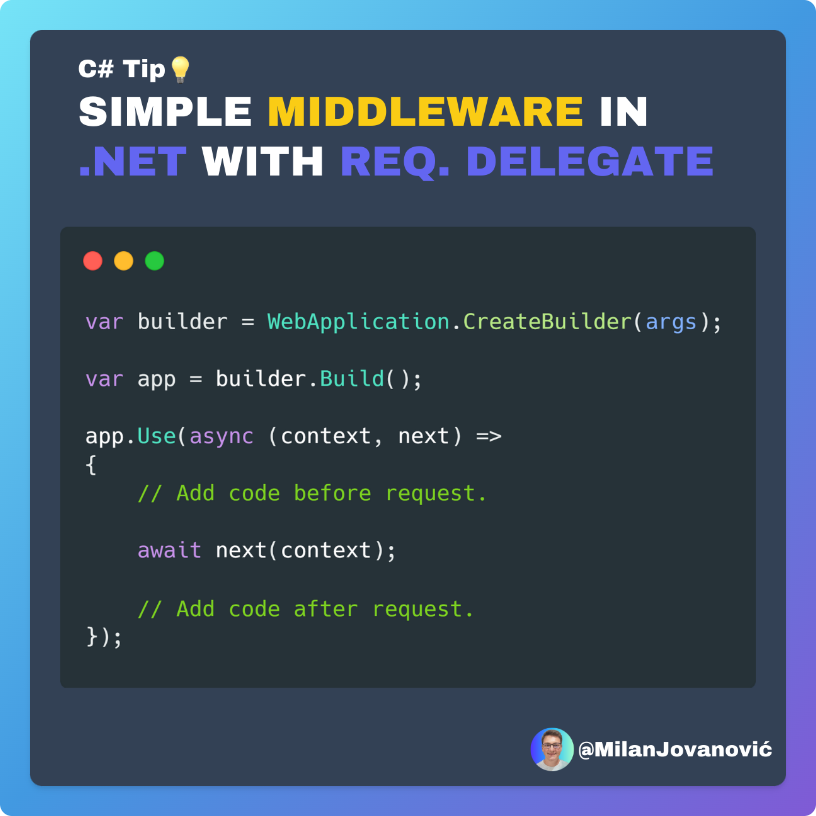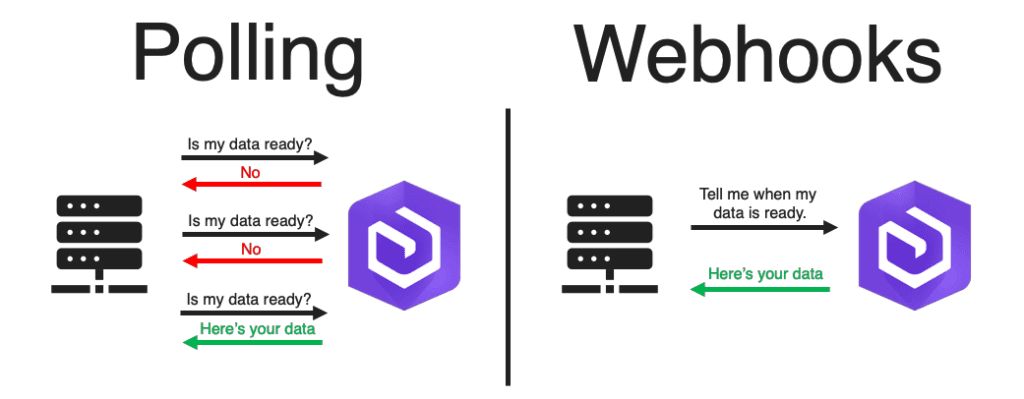What is the simplest way to create middleware in .NET?
Middleware allows you to introduce additional logic before or after executing an HTTP request.
There are three approaches to creating middleware:
- With Request Delegates
- By Convention
- Factory-Based
#dotnet
Middleware allows you to introduce additional logic before or after executing an HTTP request.
There are three approaches to creating middleware:
- With Request Delegates
- By Convention
- Factory-Based
#dotnet

The simplest one is using request delegates.
But you're missing out on:
- Strong typing
- Dependency injection
I think it makes sense for simple use cases.
But you're missing out on:
- Strong typing
- Dependency injection
I think it makes sense for simple use cases.
If you want to learn more about .NET and software architecture, consider subscribing to my newsletter.
→ Join 22.000+ engineers here: milanjovanovic.tech
→ Join 22.000+ engineers here: milanjovanovic.tech
• • •
Missing some Tweet in this thread? You can try to
force a refresh

 Read on Twitter
Read on Twitter







